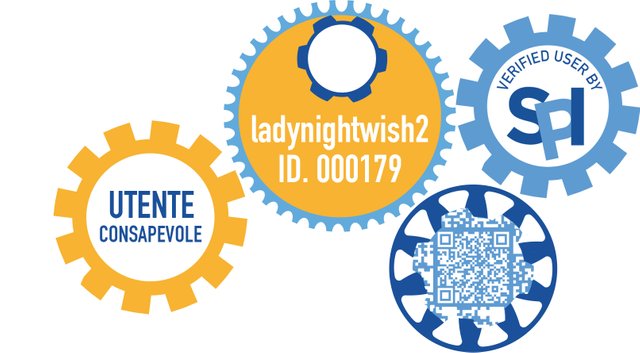[ITA/ENG] Art. 11 ed art.13: internet è davvero a rischio?/ Art. 11 and art.13: is the internet really at risk?

Art.3:DATA MINING
Procedura che permette ad una macchina di analizzare grandi quantità di dati automaticamente, in modo da recuperare altre informazioni insite nel testo stesso.
Attualmente il data mining, tramite le vecchie leggi europee sul copyright, è in Europa illimitato per proteggere i diritti su chi detenga tali contenuti.
Tramite questo articolo lo si vorrebbe aprire ad organizzazioni che hanno fini scientifici, o più in generale di ricerca.
Le critiche si basano sul concetto di innovazione: alcuni dicono che se solamente alle università sia concesso utilizzare questi strumenti, questo potrebbe portare ad un rallentamento innovativo in Europa (nel campo dell'intelligenza artificiale ad esempio).
Gli articoli più controversi sono però l'art.11 ( soprannominato tassa sui link), e l'art.13 (detto anche filtro per gli upload).
Procedure that allows a machine to analyze large amounts of data automatically, so as to retrieve other information inherent in the text itself.
Currently, data mining, through the old European copyright laws, is unlimited in Europe to protect the rights of those who hold such content.
Through this article we would like to open it to organizations that have scientific purposes, or more generally research.
The criticisms are based on the concept of innovation: some say that if only universities are allowed to use these tools, this could lead to an innovative slowdown in Europe (in the field of artificial intelligence for example).
However, the most controversial articles are article 11 (nicknamed link tax), and article 13 (also called upload filter).
Art.11:LINK TAX
La link tax è pensata per proteggere i giornali ed i loro contenuti, quando vengono postati online.
Ci sono opinioni discordanti: da una parte dice che le testate giornalistiche non chiederanno mai soldi ai social, perché significherebbe auto escludersi da piattaforme che portano un sacco di traffico, dall'altro è giusto che vi sia la possibilità per un direttore di un giornale, di far rimuovere da qualsivoglia piattaforma, parti di articolo inserite per apporre sterili critiche.
Simili legislazioni sono già presenti in Spagna e in Germania, ed in entrambi i casi si sono riscontrati effetti negativi.
The link tax is designed to protect newspapers and their contents when posted online.
There are conflicting opinions: on the one hand says that the newspapers will never ask for money to social, because it would mean self-exclusion from platforms that carry a lot of traffic, on the other it is right that there is the possibility for a director of a newspaper, to remove any part of the article from any platform to put sterile criticism.
Similar laws are already present in Spain and Germany, and in both cases there have been negative effect
Art.13:FILTRO PER GLI UPLOAD/FILTER FOR THE UPLOADS
Una legge che obbliga le società che postano contenuti a monitorare e filtrare le attività degli utenti, nell'ottica di stanare il copyright.
Il fine è nobile ma la questione è più complicata.
Attualmente, su youtube ad esempio, se un creator inserisce in un video uno spezzone di musica coperta da copyright, ha come pena la demonetizzazione del video stesso, ed il guadagno relativo viene elargito all'autore del brano.
Il nuovo articolo però si presta a qualsiasi tipo di contenuto, e perciò può essere rischioso.
Youtube è ben lontano dall'essere perfetto, estendere questo articolo a tutte le categorie ( quindi non solo a quella musicale), sarebbe una richiesta irrealistica.
Significherebbe affidare ad una macchina la gestione di concetti complicati come il contesto, la satira, l'affrontare argomenti controversi, e ciò potrebbe portare a delle grosse complicazioni.
Un'altra critica che viene mossa alla legge, è il fatto che questa favorisca le grosse multinazionali a dispetto delle start up, perché aventi più mezzi e risorse a disposizione.
Le piattaforme multimediali, in quanto esse stesse responsabili legalmente dei contenuti caricati dagli utenti, sarebbero costrette a chiudere i battenti in Europa.
Non ci resta che attendere la decisione definitiva!
A law that requires companies that post content to monitor and filter user activities, with a view to flushing out copyright.
The end is noble but the question is more complicated.
Currently, on youtube for example, if a creator inserts a piece of copyrighted music in a video, it is worth the demonetization of the video itself, and the relative gain is given to the author of the piece.
The new article, however, lends itself to any type of content, and therefore can be risky.
Youtube is far from perfect, extending this article to all categories (and not just the music), would be an unrealistic request.
It would mean entrusting a machine with the management of complicated concepts such as context, satire, addressing controversial subjects, and this could lead to big complications.
Another criticism that is moved to the law, is the fact that this favors the big multinational companies in spite of the start up, because they have more resources and resources available.
The multimedia platforms, as they themselves are legally responsible for the content uploaded by users, would be forced to close their doors in Europe.
We just have to wait for the final decision!
Fonti: https://eur-lex.europa.eu/legal-content/EN/TXT/?uri=CELEX:52016PC0593

Congratulations @ladynightwish2! You have completed the following achievement on the Steem blockchain and have been rewarded with new badge(s) :
Click here to view your Board
If you no longer want to receive notifications, reply to this comment with the word
STOP